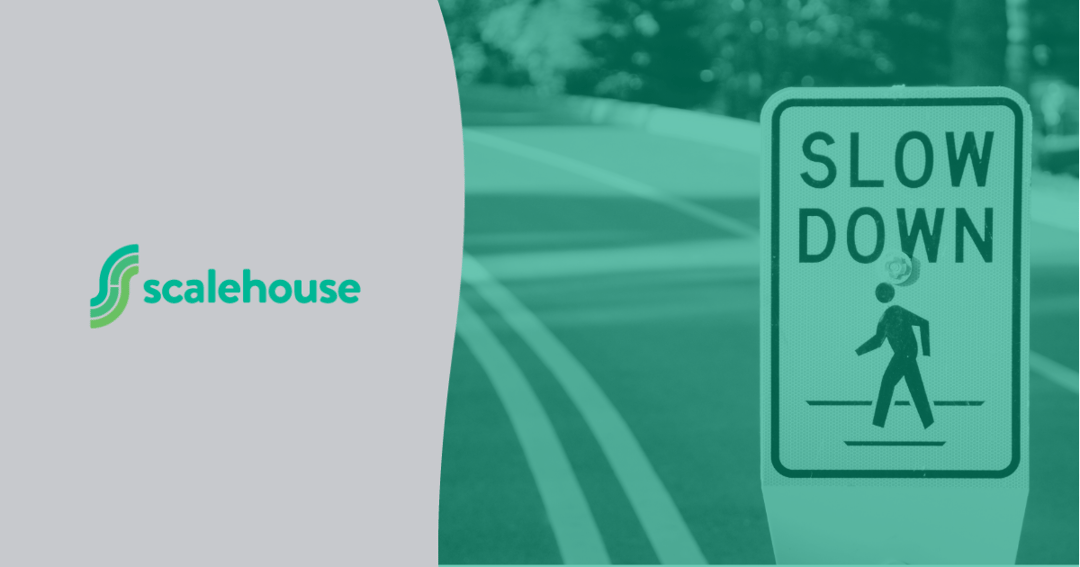Embracing Slow Learning: A Faster Path to Sustainable Growth
 Kristin Luck
Kristin Luck
The pressure to constantly innovate and adapt can be overwhelming for businesses. The mantra "time is money" often drives companies to prioritize speed and efficiency above all else. However, in the pursuit of rapid progress, the importance of slow learning is often overlooked. Contrary to popular belief, going slow can be the key to a sustainable growth strategy that drives going fast in the long run.
Slow learning is a deliberate approach that emphasizes depth over breadth, allowing individuals and organizations to fully grasp complex concepts and skills. It involves taking the time to absorb information, reflect on experiences, and practice deliberately. While it may seem counterintuitive in a world that values speed and instant results, slow learning lays the foundation for deeper understanding and mastery.
The Benefits of Going Slow
-
Building a strong foundation
Just as a house needs a solid foundation to withstand the test of time, businesses require a strong foundation of knowledge and skills to thrive in a competitive landscape. Slow learning enables employees to develop a deep understanding of their craft and lay the groundwork for innovation and problem-solving.
- Fostering creativity and innovation
Creativity often takes a backseat in a rush to meet deadlines and deliver results. However, slow learning provides the space for creativity to flourish. By encouraging employees to explore ideas at a slower pace, businesses can unlock innovative solutions and uncover growth opportunities that they may have missed under time-pressured circumstances. - Enhancing problem-solving skills
In the increasingly complex business environment, effective problem-solving is a valuable skill. Slow learning allows individuals to dissect problems, analyze root causes, and develop thoughtful solutions. By taking the time to understand the intricacies of a problem, businesses can avoid costly mistakes and make informed decisions. - Promoting mindfulness and well-being
The relentless pursuit of speed can take a toll on employee well-being, leading to burnout and decreased productivity. Slow learning encourages mindfulness and self-reflection, promoting a healthier work-life balance. By prioritizing well-being, businesses can create a positive and supportive work environment where employees feel valued and empowered.
By embracing slow learning, organizations can build a strong foundation for sustainable growth, foster creativity and innovation, enhance problem-solving skills, and promote employee well-being.
Implementing Slow Learning in Business
Embracing slow learning requires a shift in mindset and culture within an organization. Here are some strategies for integrating slow learning into your business:
- Create space for reflection
Encourage employees to take breaks throughout the day to reflect on their work and experiences or set aside one day each month for focused reflection. Provide opportunities for team discussions and brainstorming sessions where ideas can be explored without the pressure of immediate deadlines.
- Foster a growth mindset
Promote a culture of continuous learning and growth within your organization. Encourage employees to embrace challenges and view setbacks as opportunities for learning and improvement. - Invest in training and development
Allocate resources for training and development programs that prioritize depth of learning over speed. Provide employees with access to workshops, seminars, and online courses that allow them to deepen their expertise in their respective fields. - Lead by example
As a leader, demonstrate the value of slow learning by incorporating it into your work practices. Take the time to listen to your team, reflect on feedback, and approach challenges with patience and perseverance.
At a time when speed and instant gratification are glorified, the concept of slow learning may seem out of place. However, it is precisely this deliberate approach that can set businesses apart. By embracing slow learning, organizations can build a strong foundation for sustainable growth, foster creativity and innovation, enhance problem-solving skills, and promote employee well-being.
This is your call to action to embrace the power of going slow to ultimately go fast!


